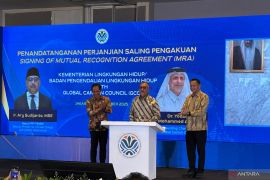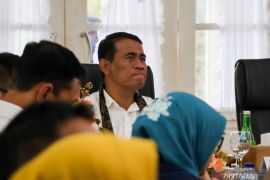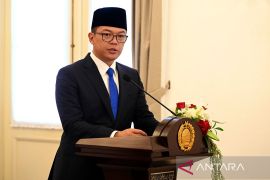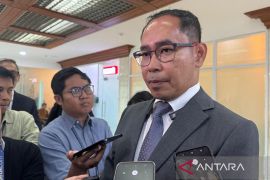Indonesias amnesty schemes success surpassed even the experience of Italy and Chile that had carried out a similar program earlier.
Moreover, the program which began in July 2016, has lent a momentum to reforms in the taxation system, particularly when it comes to improving the tax data base and services.
Until Sept. 30, Rp97.2 trillion were accrued as redemption funds from the tax amnesty program, while the total declared and repatriated funds reached Rp3,621 trillion. The repatriated funds amounted to Rp137 trillion.
A total of 347,033 people who had evaded taxes earlier participated in the governments tax amnesty program in the first phase, according to the Tax Directorate General of the Finance Ministry.
These figures were obtained from the provisional data collected till Sept. 30, Hestu Yoga Saksama, the spokesman of the Tax Directorate General, said.
A total of 14,135 tax payers obtained a Text Identification Number (NPWP) for the first time.
The governments nine-month tax amnesty program had set a target to collect Rp165 trillion worth of redemption funds, Rp4 thousand trillion worth of declared funds, and Rp1 thousand trillion in repatriated funds.
President Joko Widodo (Jokowi) has appreciated the achievement made through the tax amnesty program.
The head of the state, however, emphasized that the main focus of the program remains ushering in reforms in the tax system.
Therefore, Jokowi did not want to predict whether the target of collecting redemption funds worth Rp165 trillion would be reached by the end of this year.
"I dont want to talk about the target, because what we want to do is to expand the tax base, improve the taxation system as well as our service system," he remarked.
The president urged the tax evaders who have still not availed of the amnesty offer to participate in this program in the second and third phases that offer numerous benefits.
These benefits include a waiver for taxes not paid in the past, no tax related administrative sanctions or criminal sanctions, and a promise that the data would not be used for legal investigations.
Finance Minister Sri Mulyani thanked the tax payers who have helped Indonesia become the most successful among countries that have adopted a tax amnesty policy.
The Tax Directorate General will evaluate the implementation of the tax amnesty program, update the tax payer data base and will improve the services in the future.
"We will continue to maintain our credibility by providing good services," she added.
Furthermore, the Chief Representative of the Asian Development Bank in Indonesia, Steven Tabor, has shared President Jokowis view that the countrys tax amnesty program, while helping achieve the state revenue target, will be more useful in the long term to strengthen the countrys tax data base.
"The program indeed has the potential to increase the state revenues, but it will prove to be even more useful to strengthen the tax data base," Tabor noted.
He stated that the impact of the program on tax revenues and on the improving tax data base would be fully seen in 2017.
In the meantime, the number of Asset Declaration Letters (SPH) received from individuals reached 279,935 with total of redemption funds worth Rp77.4 trillion, and from corporation taxpayers reached 72,064 letters, with redemption funds amounting Rp9.54 trillion.
Up to the end of the first period, the majority of tax amnesty applicants were individual tax payers of non-Small and Medium Scale Enterprises (SMEs) with an averaged redemption funds worth Rp331 million.
The largest amount of repatriated funds came from Singapore, amounting to Rp77.4 trillion, followed by Cayman Islands Rp16.5 trillion, Hong Kong Rp14 trillion, China Rp3.6 trillion and British Virgin Islands Rp2.3 trillion.
A majority of overseas declared assets were recorded in Singapore, amounting to Rp631.1 trillion, followed by British Virgin Island Rp71.7 trillion, Cayman Islands Rp52.5 trillion, Hong Kong Rp37.9 trillion and Australia Rp32.1 trillion.
Most of the assets reported by large tax payers are in the forms of investment and securities, cash and cash equivalent, land, buildings and other fixed assets, claims, stocks and precious metals.
The government has launched its tax amnesty program in an effort to increase tax revenues to help finance infrastructure development programs.
Tax amnesty applicants were asked to pay a two percent penalty in September, but if they pay after September, the penalty will be higher.
The first period for the tax amnesty program is from July 18 until September 30, 2016, offering redemption tariffs of two percent; the second is from October 1 until December 31, 2016 (three percent); and the third period is January 1 until March 31, 2017 (five percent).
After the end of the program, failure to pay taxes or tax evasion would be legally pursued.
The government has warned, that in 2018 it would no longer be possible for tax payers to hide assets to evade paying taxes, as Indonesia would take part in an international system of transparency.
Minister Sri Mulyani has encouraged micro, small and medium enterprises (SMEs) to take part in the second period of tax amnesty program from Oct 1 to December 31. ***3***
(f001/INE/f001)
Reporter: Fardah
Editor: Fardah Assegaf
Copyright © ANTARA 2016











